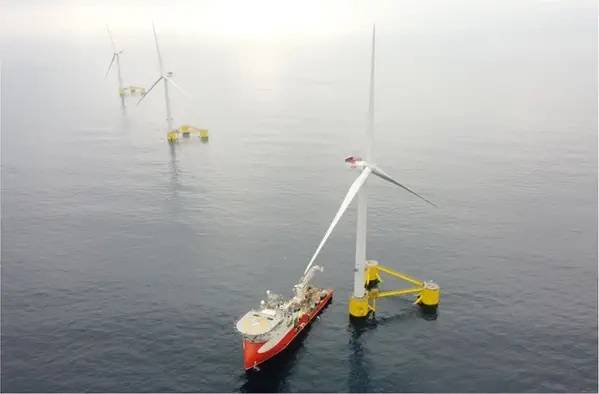
Spanish renewable energy firm Capital Energy has submitted requests for a preliminary environmental analysis for three floating offshore wind farms with a total power of 2 gigawatts, Portugal's environmental agency APA said on Monday.
In July, the Portuguese government set the capacity on offer in its first offshore wind auction later this year at 2 GW in three areas off the country's Atlantic coast, given the interest it was attracting.
Portugal plans to launch successive auctions for a total of 10 GW until 2030.
In a statement, APA said the request for preliminary analysis by Capital Energy was an optional instrument, but "allows for rationalizing resources and time involved in preparing the environmental impact study", which will be necessary if the company wins the licences.
The floating wind farms off the central and northern coast will be installed in deep waters, where winds are stronger and more continuous, allowing the generation of more power than those fixed to the seabed near the shore or those on land.
APA said two farms will have 40 wind turbines with a total power of 600 megawatts from each farm, while a third park will have 51 wind turbines with a capacity to generate a total of 765 MW.
It said that the bulk of wind energy production would be to supply electricity to grid operator REN , while the remainder would produce green hydrogen.
Portugal already has a small, 25-megawatt floating wind project off its Atlantic coast [Windfloat Atlantic], which is owned by Ocean Winds, a joint venture between Portugal's main utility EDP and French company Engie.
Other utilities have also shown interest in such projects in Portugal, including Germany's BayWa BYWGnx.DE, the Irish-Spanish consortium IberBlue Wind, fund manager Copenhagen Infrastructure Partners, and a partnership between Portuguese oil company Galp GALP.LS and France's TotalEnergies TTEF.PA.
(Reuters - Reporting by Sergio Goncalves; Editing by Alison Williams)